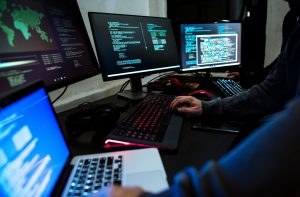Illinois lawmakers review bill aimed to define, protect against ‘doxing’
By Nika Schoonover Capitol News Illinois — March 9, 2023
Doxing, as defined by House Bill 2954, occurs when an individual intentionally publishes another person’s private information, such as their social security number or home address, without their consent.
SPRINGFIELD – A bill that would create a clear legal avenue for victims of “doxing” to seek damages and protections against their perpetrators passed unanimously out of a House committee Wednesday.
Doxing, as defined by House Bill 2954, occurs when an individual intentionally publishes another person’s private information, such as their social security number or home address, without their consent.
Additionally, for a doxing claim to be successful, the individual would have had to publish that information with the intent of harming the other person. In order for a claim to be justified, the victim would have to prove they faced a “substantial life disruption.”.
David Goldenberg, Midwest regional director of the Anti-Defamation League, testified at the committee in support of the legislation.
“HB 2954 fills a gap in current Illinois law,” Goldenberg said. “It grants doxing victims the ability to seek civil recourse from their attackers including monetary damages and any other form of relief under Illinois law.”
Oregon and Nevada have also passed anti-doxing laws and a similar bill is moving through the Washington state legislature.
The ACLU of Illinois currently opposes the bill, stating that the language needs to be “tightened” to earn the organization’s support.
“We do feel this language is overbroad and unconstitutional as drafted,” Angela Inzano, policy and advocacy strategist for ACLU of Illinois, said in an interview.
Inzano told the committee the ACLU wants to include amendments that would create exceptions for private information shared with the media, by whistleblowers and in legitimate protests. Additionally, they want to clarify language to protect private communication between two people where the information is not publicly posted, as well as information that is already publicly available.
While the ACLU and legislators involved with the bill are still actively working together, bill sponsor Rep. Jennifer Gong-Gershowitz, D-Glenview, said she’s not promising to include all their suggestions.
“The intent is not to limit constitutionally protected speech and I don’t think the language of this bill does that,” Gong-Gershowitz said. “The definition of doxing may include some publicly available information that would not necessarily require a hack to access. However, the semi-public nature of this information should not provide a blanket immunity for a malicious actor who wields an individual’s personal information as a tool to harass, threaten, intimidate and injure that person.”
Gong-Gershowitz added she believes the bill already is “narrowly crafted” but said she’s willing to continue conversations with ACLU Illinois.
nschoonover@capitolnewsillinois.com
Biometric privacy law strengthened by latest high court ruling







